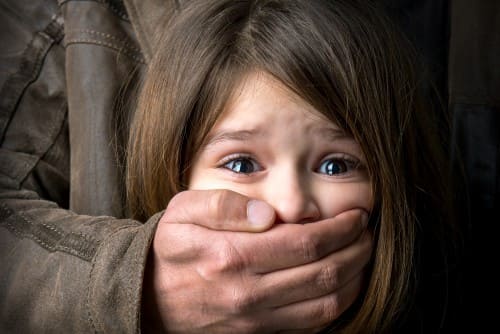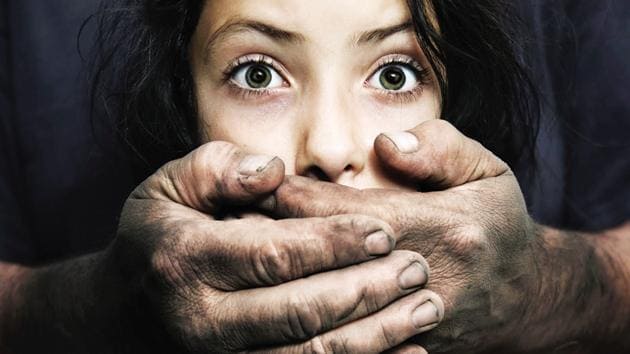Teaching kids about healthy boundaries and focusing on consent education for kids is more important than ever. As parents, we frequently prioritize academics, athletics, and physical well-being; nevertheless, it’s as critical to teach kids social skills in a healthy manner.
Consent education for kids is not just teaching kids to say “no” when they feel uncomfortable. It means helping them understand that they own their bodies and can set boundaries as well as respect others’ rights.
In this article, we’ll explain why it’s crucial to teach consent education for kids and give you five simple ways to teach kids about consent at home.
You can ensure that your son or daughter becomes self-assured, considerate, and safe by integrating these teachings into his/her daily life.
What Is Consent And Healthy Boundaries?
Consent is a voluntary, enthusiastic, and mutual agreement among all participants in any interaction. As parents, we start teaching our kids about it early on and the lessons change as they grow.
The Centers for Disease Control and Prevention (CDC) states that about 1 in every 4 girls and 1 in every 20 boys suffer childhood sexual assault in the United States alone. This indicates an unacceptably high rate of sexual abuse among children.
For adolescents, the discussions about consent education for kids should expand to cover digital interactions, emotional consent, and respecting personal space everywhere.
Healthy limits are self-imposed rules for how we relate with others and allow them to relate with us; they teach children self-esteem and respect for others.
As parents, we play a critical role in this consent education for kids. When we integrate talks on consent and boundaries into our daily chats, activities or decisions as well, it creates an environment that supports their emotional and social growth.
In one year alone, studies have shown that approximately 16% of American adolescents aged between fourteen and seventeen years old were victims of sexual violence. This is a clear indication showing how vulnerable teenagers can be when it comes to cases of sexual exploitation.
Those who have gone through CSA as adults are at a higher risk (1.35–2.12 times) when it comes to reporting various health issues including poor general health status, pain, gastrointestinal problems like diarrhea or constipation, and even obesity.
The socioeconomic implications for survivors of child sex crimes such as these are dire; they earn an average of $8k less per annum than their non-abused counterparts.
Read More: 5 Warning Signs of Child Sexual Abuse And How to Protect Your Kids!
How Does Consent Education For Kids Prevent Sexual Abuse?
The staggering statistics and cascading ramifications caused by Child Sexual Abuse (CSA) are both eye-opening and alarming.

Being parents, we have a vital duty to teach our children about consent from an early age which may greatly contribute to the prevention of sexual abuse. The following are some ways in which early consent education for kids can be helpful:
1. Understanding personal boundaries
We must let them know their bodies belong to them alone. consent education for kids involves teaching kids about bodily autonomy.
Understanding this will help them learn what limits should not be crossed by others. By instilling such awareness in them when still young, we give them the power to reject unwanted touches as well as identify inappropriate conduct.
2. Developing communication skills
Our children should be taught how best they can express themselves especially when it comes to what makes them comfortable or not. Consent teaching allows for open expression without fear of victimization or punishment.
This ability to communicate effectively acts as a strong defense against any potential abuse since it enables one to convey clearly whenever something feels off.
3. Recognizing safe adults
Children need to understand who could serve as reliable adults with whom they can share their fears if any arise while feeling unsafe.
We ought to make sure that they are aware of all trustworthy grown-ups around like teachers and, relatives among others so that in case need be.
As parents, we can initiate this consent education for kids earlier on and keep reinforcing them to create an environment where consent and body autonomy discussions become part of everyday life for our children.
This approach shields not only but also equips him/her with the necessary skills required to navigate safely through different social settings during the growth process.
Read More: 5 Alarming Impacts of Child Sexual Abuse And Addressing Them As Parents
Ways to Teach Kids about Consent and Healthy Boundaries
We need to strive for a more respectful society by giving our children the tools they need to be safe and respectful in social situations.

Here are seven ways to teach kids about consent and healthy boundaries:
1. Begin with Early Body Autonomy
When it comes to body autonomy as consent education for kids, there’s no such thing as too early. Start by telling your child that their body is theirs alone, and they have the right to say “no” if something doesn’t feel right.
Respecting these decisions about themselves helps them feel empowered over their own lives. Letting a cousin know he or she can either have a high-five or a hug teaches them that what they want matters and should be honored.
2. Be a Role Model of Respectful Behavior
One of the most effective ways to teach kids about consent is to model the behaviour yourself. Children learn through observation so we must model respectfulness within our own actions.
Show them how to ask before using someone else’s things or going into another person’s space.
“Can I hold your toy car for just a minute?” or “May I give you a hug?”
By living out what we teach as consent education for kids, our kids will also learn to appreciate other people’s limits.
Read More: 10 Characteristics Of A Role Model Parent You Should Know!
3. Use Language Suitable for the Child’s Age
Use age-appropriate language when explaining consent education for kids. If you’re talking to younger children, keep it simple: “Consent means asking and waiting for a ‘yes’ before you do something with someone else.”
As they get older, you can have more complex discussions about consent in different situations such as friendships or romantic relationships.
- For Young Children: “Can you ask your friend if they want to share their toy before you take it?”
- For Older Children: “It’s important to ask before you post pictures of your friends online.”
4. Foster Open Communication
Establish a safe space where your child can freely talk about their emotions and limits. Let them know that they can always speak up whenever something feels wrong or when they need to protect their boundaries.

Whenever your kid expresses discomfort or sets a boundary, practice active listening this is an important step in consent education for kids. Respond empathetically while validating their feelings so that there will be honest conversations and they understand that their voice counts.
5. Teach the Power of Saying ‘No’
Teach your child how to say “no” without fearing backlash and ensure that this decision is respected at all times by anyone involved.
One of the ways to teach kids about consent is that you can create scenes where they rehearse saying “no” politely in different scenarios which will help them become better at setting limits.
“What would you do if someone asked to play with your favorite toy, but you didn’t feel like sharing? How would you say ‘no’ nicely?”
Also, train them on how to react when others tell them ‘no’ and why it’s wrong to try to force someone into changing their mind.
6. Healthy Boundaries
As part of consent education for kids explain to your child what personal space is and how they can tell if someone feels comfortable or not. Use things that happen every day as examples, e.g., sitting too close to somebody who’s reading or taking a bath.
Play a game with them called “personal space bubble” where they have to show different levels of closeness with family, friends, and strangers. Talk about why boundaries might be different in relationships with people we know well versus those we don’t know very much at all.
Act out some scenes where children practice saying no or asking for permission in safe environments. Think of situations that might arise, like sharing toys or being invited to play games that aren’t interesting.
We should always teach our kids about consent and healthy boundaries because this will ensure their safety while interacting with others. It falls upon us parents therefore to help create communities characterized by empathy; this can only be achieved through dialogue – one step at a time!
Read More: 5 Key Indicators of Children’s Mental Health Issues You Need To Be Aware Of!
A Word From Mind Family
Consent education for kids and healthy boundaries isn’t just a single conversation—it’s an ongoing journey that we embark on together as parents and caregivers.
At Mind Family, we understand the immense responsibility we carry in guiding our children to become respectful, empathetic, and self-aware individuals.
Remember, every small step counts. Whether it’s respecting your child’s choice to refuse a hug or discussing the importance of asking before sharing a photo of a friend, each action we take helps build a foundation of trust and respect.
Here at Mind Family, we encourage you to continue these important conversations at home, in schools, and within your communities. Let’s work together to create a world where every child feels safe, respected, and empowered to set their boundaries.
Frequently Asked Questions (FAQs)
1. What are consent and healthy boundaries?
Consent is a mutual, voluntary agreement in any interaction. Healthy boundaries are guidelines for respecting personal space and interactions and fostering respect for oneself and others.
2. How does consent education for kids prevent sexual abuse?
Teaching children about body autonomy and boundaries helps them recognize inappropriate behavior, confidently say “no,” and seek help, reducing vulnerability to abuse.
3. What are some ways to teach kids about consent?
Teach body autonomy early, model respectful behavior, use age-appropriate language, encourage open communication, role-play scenarios, and educate on body safety and privacy.












Leave a Reply